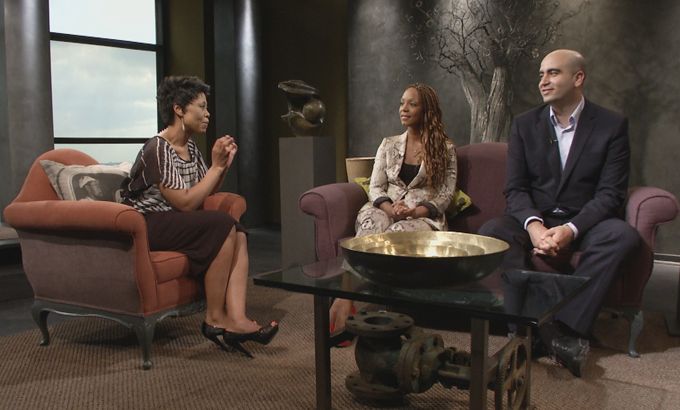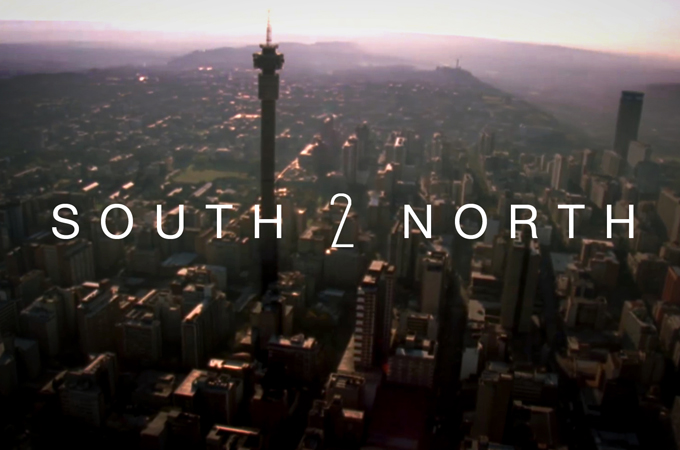
Leaders of change
Meet three inspirational leaders committed to tackling their countries’ most stubborn problems.
| No subject is off limits in the first ever global talk show hosted from Africa in which Redi Tlhabi talks frankly to inspiring and intriguing personalities from across the world. |
What do you think of your leaders? Do you think you could do a better job than them? Are they corrupt and tired old men or are they youthful and energetic, but do you still wonder if they are going to turn out one day just like the old bad guys?
All three of our guests on this week’s South2North know what it takes to be a leader.
Keep reading
list of 4 itemsInside the pressures facing Quebec’s billion-dollar maple syrup industry
‘Accepted in both [worlds]’: Indonesia’s Chinese Muslims prepare for Eid
Photos: Mexico, US, Canada mesmerised by rare total solar eclipse
Joining Redi in the studio are two people who have been hand-picked as future leaders of Africa. They were both chosen from hundreds of candidates by the prestigious African Leadership Institute to join a selected group of Tutu Fellows, named after their patron, Archbishop Desmond Tutu.
For the past year, Al Jazeera’s cameras have been following the Tutu Fellows, and next week we start a four-part documentary series about them.
Zied Mhirsi, a Tunisian doctor, fiery revolutionary, media entrepreneur and public health expert, is very outspoken, endearing and provocative. Having been involved in the Tunisian revolution, he now has high hopes of making another change.
Swaady Martin-Leke, originally a child refugee from Liberia, is now a businesswoman, calling herself a citizen of the world.
A glamorous, cosmopolitan entrepreneur, Swaady founded a tea company to show that African products are more than handicrafts. She uses her mixed heritage to provide an international perspective to Africa’s problems.
“In our generation what is unique is that we had to experience a lot of changes in a very short period of time. Also we are born with a responsibility and as Africans we are born with that responsibility to change our continent in our lifetime and see all these changes happen and be part of it.”
The two young leaders have different opinions on many things like Swaady believes in having benevolent dictators in Africa. She says:
“We are not really ready for democracy but it’s not acceptable in the current global context to actually say that we are not ready for democracy. So what’s happening is until we get benevolent dicators like in Rwanda we are basically at the mercy of our governments and in the meantime we’re just almost victims of democracy.”
Zied Mhirsi, who was involved in using social media during the Tunisian uprising is appalled by her opinion:
“Democracy is not based on the president, it’s based on the citizens. We are one billion Africans … and I’m shocked that you go back to the example of a benevolent dictatorship …. This is where we are because of this kind of dictatorship. I can go back to the example of Rwanda, they can only do it to a certain extent. We did it in Tunisia for 20 years, we educated the population … You need to have freedom so people can thrive and have ideas and exchange and do things, so they can innovate and bring the new economy that will bring growth. We are young leaders and we are here to promote a new style of leadership – you can’t go back … and say what we need is another dictatorship.”
The two also discuss the Arab Spring, Aids, women’s rights and how selling luxury tea can make a difference in Africa.
On this episode of South2North we also hear from someone who is already a leader of his country. Earlier Redi Tlhabi spoke to Najib Tun Razak, Malaysia’s prime minister, who has been in politics almost all his adult life, about leading his country of nearly 29 million people – and how he is using social media to do so.
“As a politician I believe that we have to be adaptive, we must adjust our style … I think the young people today want a government that listens to them, that would create opportunities for them, social mobility, create jobs for them … It’s about bringing about real change and real change is taking place in Malaysia and I believe the young people here have the confidence …”
He also discusses modern and progressive Islam and the issues of violence and extremism:
“The Global Movement of Moderates will give a very positive image of Islam to the world, especially to the western world … If moderates get together and if moderates speak out, if moderates occupy the centre stage then we can drown out the voices of hatred, violence and extremism … Islam as it is applied in Malaysia is consonant with modernity, with progress, with social justice, including respecting the rights of women … we are proud of our achievements.”
South2North can be seen each week at the following times GMT: Friday: 1930; Saturday: 1430; Sunday: 0430; Monday: 0830. |
